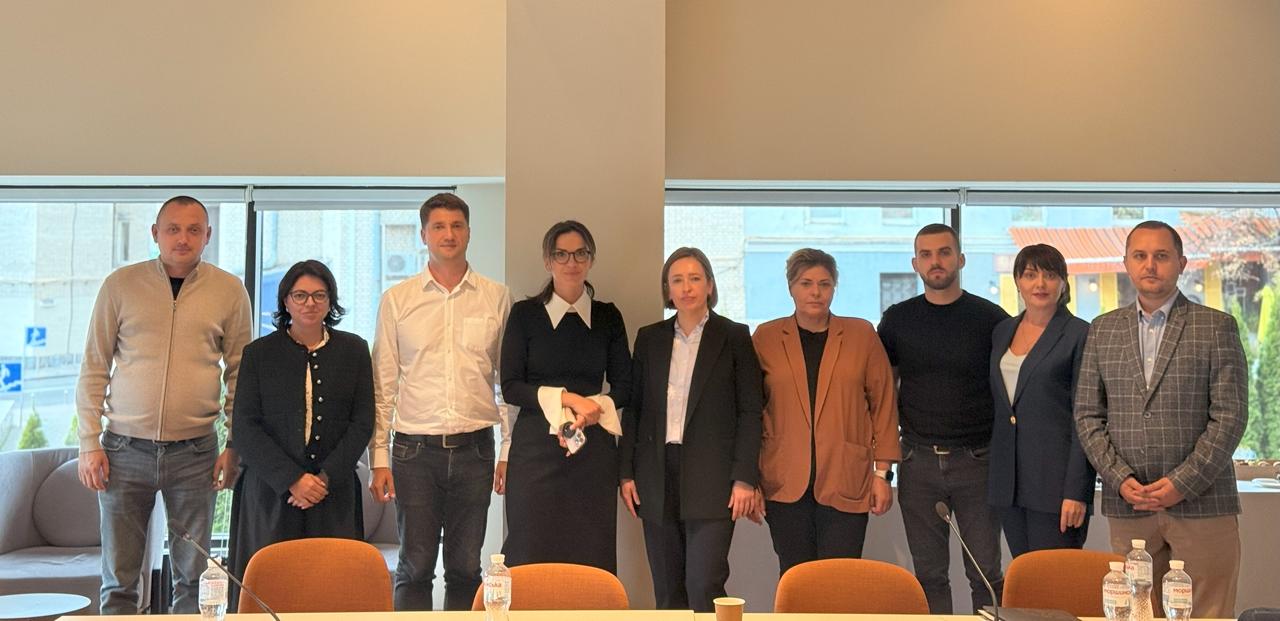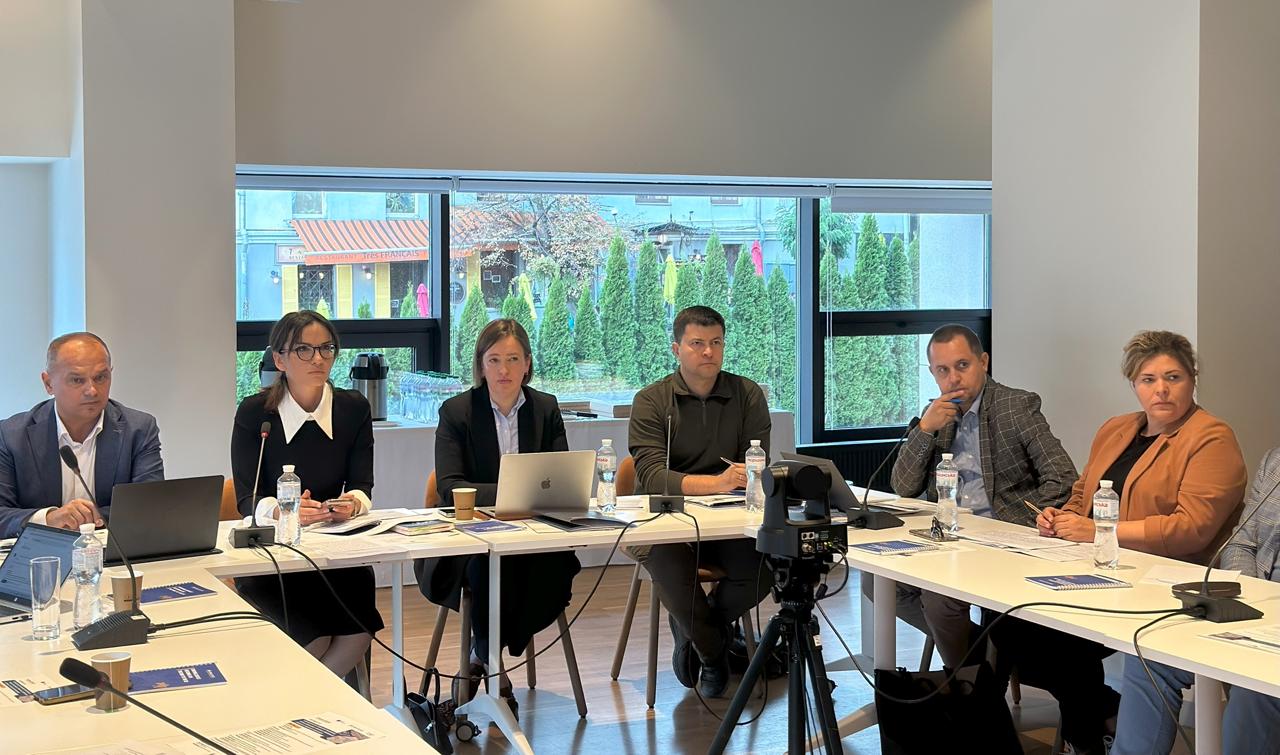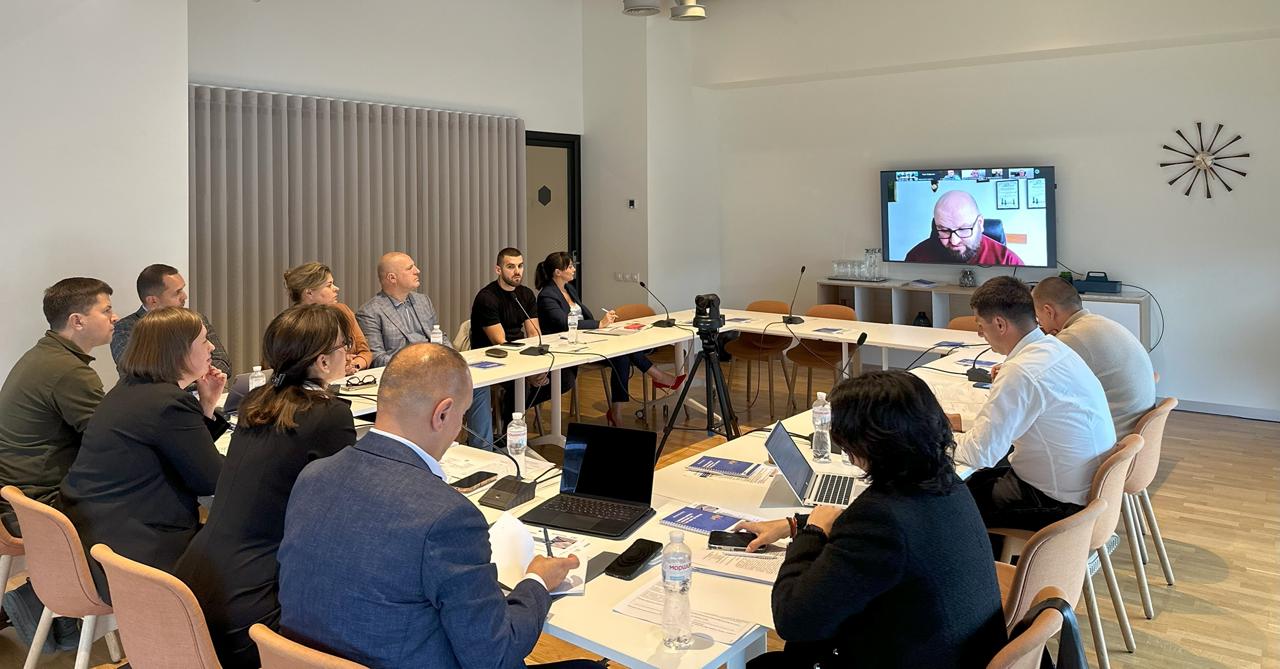EU Project Pravo-Justice Held a Roundtable Discussion on Improving Mechanisms for Suspension and Termination of Private Enforcement Officers

On 19 September, at the initiative of EU Project Pravo-Justice, a roundtable discussion on ‘Legislative Improvement of Mechanisms for Suspension and Termination of Private Enforcement Officers’ was held. The discussion was focused on the draft law ‘On Amendments to Certain Laws of Ukraine on Improving Procedures for Suspension and Termination of Private Enforcement Officers’ (No. 13499). The discussion was attended by representatives of the Ministry of Justice of Ukraine, the Association of Private Enforcement Officers of Ukraine, the Independent Association of Banks of Ukraine, the Ukrainian Bar Association. and the Ukrainian National Bar Association.

“Draft Law No. 13499 was developed by the Association of Private Enforcement Officers of Ukraine with the support of EU Project Pravo-Justice. A number of comments and suggestions for its improvement have been received from the Ministry of Justice, the National Bank, and representatives of the banking sector. The task is to find common solutions and finalise the text, because everyone recognises that the problem exists and needs to be systemically addressed,” said Iryna Zharonkina, Enforcement and Protection of Property Rights Component Lead at EU Pravo-Justice Project.
Valerii Bozhyk, Deputy Chair of the Verkhovna Rada Committee on Legal Policy, referred to the findings of a recent analytical report on the application of existing procedures for suspending and terminating private enforcement officers prepared by experts of EU Project Pravo-Justice. The document notes that the current legislation does not meet modern challenges and needs to be changed. According to the parliamentarian, Draft Law 13499 offers possible solutions to these problems. However, it needs to be qualitatively revised in light of the comments, which will increase its chances of being adopted by Parliament.
“Most of the proposals relate to the procedures for disposing of current accounts of private enforcement officers whose activities have been suspended or terminated. It is important to take these proposals into account at the stage of finalising the draft law to minimise contradictions during the parliamentary consideration. Private enforcement officers have proven their effectiveness, and our task as legislators is to provide mechanisms that will facilitate further development of the profession,” said Valerii Bozhyk.

Oleksandr Oliinyk, Director of the Directorate of Justice and Criminal Justice of the Ministry of Justice of Ukraine, spoke about the regulator’s steps to eliminate gaps in the regulation of the mechanism for suspending the activities of a private enforcement officer.
“Consultations with the National Bank have shown that it is impossible to address the issue through bylaws alone, as legislative changes are needed. It shall be clearly defined: the order of the Ministry of Justice to suspend a PEO’s activities shall automatically block his/her accounts, and the PEO who replaces the colleague shall get access to them. Amendments to the Law of Ukraine ‘On Bodies and Persons Enforcing Court Decisions’ have already been developed. However, these ideas can also be taken into account in draft law No. 13499,” he stressed.
Oksana Rusetska, Head of the Association of Private Enforcement Officers of Ukraine, said that the professional community generally supported the draft law and urged MPs not to delay its adoption to ensure the continuity of enforcement proceedings.
“The enforcement sector should run like clockwork, and therefore MPs should vote for the document. At the same time, not only access to the accounts of suspended PEOs remains a problematic issue, but also the general regulation of the suspension procedure. The institution of temporary replacement of a private enforcement officer also needs to be improved. All these issues should be addressed comprehensively,” said Oksana Rusetska.
Viacheslav Panasiuk, National Expert of EU Project Pravo-Justice, outlined the problem of suspension of expense transactions on a client’s account by a bank at the request of a third party and voiced possible legislative instruments to address it.
“There are cases when the activities of a private enforcement officer are suspended, but he or she continues to use the account and funds belonging to creditors and debtors. It is necessary to create a mechanism that will allow the APEO, as a third party, to apply to the bank to block expenditure transactions until the next legally significant decision. Such an algorithm is laid down in the draft law, but it is advisable to discuss alternative options for its implementation,” he stressed.
The roundtable discussion also covered the disclosure of bank secrecy by banks and ways to introduce an effective mechanism for terminating the activities of a private enforcement officer.
Following the discussion, the roundtable participants underlined that Draft Law No. 13499 needs to be revised to take into account the comments. Further cooperation should be focused on developing transparent and effective mechanisms that will both protect the rights of the parties and contribute to the stability of the enforcement system.